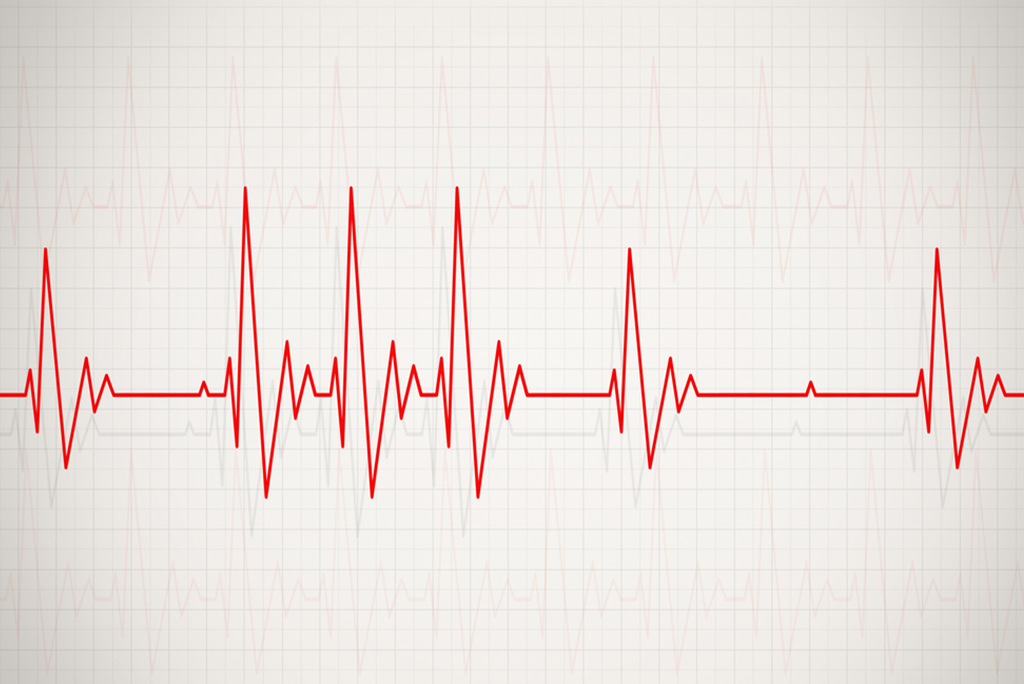Heart arrhythmias, irregularities in heart rhythms, can often be elusive. Recognizing heart arrhythmia symptoms is a cornerstone for timely intervention and maintaining a heart-healthy life. These irregularities can range from harmless to life-threatening, so understanding and differentiating the symptoms is crucial. Let’s dive into the most telling symptoms of heart arrhythmia to help you stay informed and proactive.
- Palpitations: The Most Recognizable Sign
Feeling like your heart is fluttering, racing, or even skipping beats? Palpitations are the most commonly associated symptom with arrhythmias. It’s that unexpected thud or rapid beat that catches your attention and makes you wonder about your heart’s rhythm.
- Fatigue and Weakness
An irregular heart rhythm can affect the heart’s efficiency in pumping blood, leading to feelings of fatigue or weakness. If you find yourself feeling tired without a clear reason, it might be related to an underlying heart rhythm issue.
- Dizziness or Light-headedness
Arrhythmias can cause a drop in blood pressure or decrease the blood flow to the brain, leading to feelings of dizziness or even fainting spells.
- Shortness of Breath
Experiencing difficulty breathing or feeling winded even after minimal activity can be indicative of arrhythmias. This symptom can also accompany other heart conditions, making it essential to consult with a healthcare professional.
- Chest Discomfort or Pain
While not always present, some individuals with arrhythmias may feel a tightness or pain in their chest. This can sometimes be mistaken for angina or even a heart attack.
- Sweating Unexpectedly
Breaking into a cold sweat without any apparent reason, especially when paired with other symptoms on this list, can be a sign of a heart arrhythmia.
- Syncope: Fainting Spells
One of the more alarming symptoms of heart arrhythmia is fainting or near-fainting episodes. These spells occur due to a temporary drop in blood flow to the brain and warrant immediate medical attention.
- Pounding in the Neck
Sometimes, the effects of an arrhythmia can be felt in the neck. People might experience a pounding sensation or rapid fluttering, which is essentially a reflection of the heart’s irregular activity.
Understanding Different Types of Arrhythmias
It’s vital to realize that not all arrhythmias are the same. The heart can beat too fast (tachycardia), too slow (bradycardia), or irregularly. The type of symptoms one experiences often correlates with the kind of arrhythmia.
- Atrial Fibrillation (AFib): This is the most common type of serious arrhythmia. AFib is when rapid electrical signals cause the two upper chambers of the heart, the atria, to quiver. Symptoms may include heart palpitations, fatigue, and shortness of breath.
- Ventricular Tachycardia (VT): This involves a fast, regular beating of the heart’s lower chambers, the ventricles, which can lead to reduced blood flow to the body and may manifest as dizziness or fainting.
- Bradycardia: This occurs when the heart rate is slower than normal. While a resting heart rate below 60 bpm can be normal for some, especially athletes, in others, it might cause symptoms like fatigue or dizziness.
The Underlying Causes
Heart arrhythmias can be triggered by a variety of factors, from existing heart conditions and high blood pressure to certain medications and excessive caffeine consumption. Recognizing potential triggers or underlying causes, coupled with the symptoms, can guide individuals toward seeking the necessary medical intervention.
Monitoring and Tracking: A Proactive Approach
With the myriad symptoms and their varying intensities, it’s beneficial to maintain a health journal or use digital platforms for tracking. This aids in recognizing patterns, understanding triggers, and providing detailed information to healthcare providers.
Understanding Triggers and Prevention
Certain activities or substances can trigger heart arrhythmia symptoms. Excessive alcohol or caffeine consumption, smoking, certain medications, and even stress can precipitate an episode. Recognizing and minimizing these triggers can be an effective preventative strategy.
The Role of Regular Check-ups
Routine medical check-ups are indispensable, especially if you’ve identified potential heart arrhythmia symptoms. Regular ECGs or other advanced diagnostic tests can detect underlying heart rhythm irregularities, allowing for timely interventions and management.
Staying Informed: Continuous Education
Heart health, like any other medical field, continuously evolves with new research findings. It’s beneficial to stay updated about the latest in cardiovascular health solutions and advancements in arrhythmia treatments. Being an informed patient enables more effective communication with healthcare providers and can lead to better outcomes.
Charting the Path Forward
Knowledge is the cornerstone of prevention and timely intervention. By being informed about the myriad symptoms of heart arrhythmia, individuals are better positioned to recognize and act upon them. Additionally, using tools like the Viedial app offers an efficient cardiovascular health solution for tracking symptoms, ensuring that any irregularities are not missed. Remember, heart health is a journey, and every step taken in awareness and proactive monitoring makes the journey smoother.




